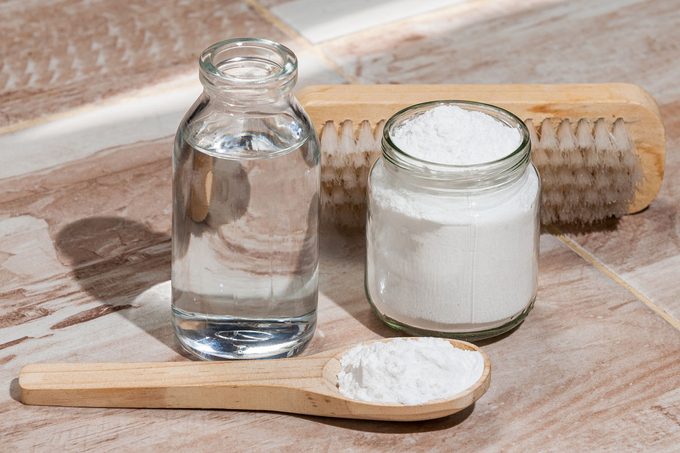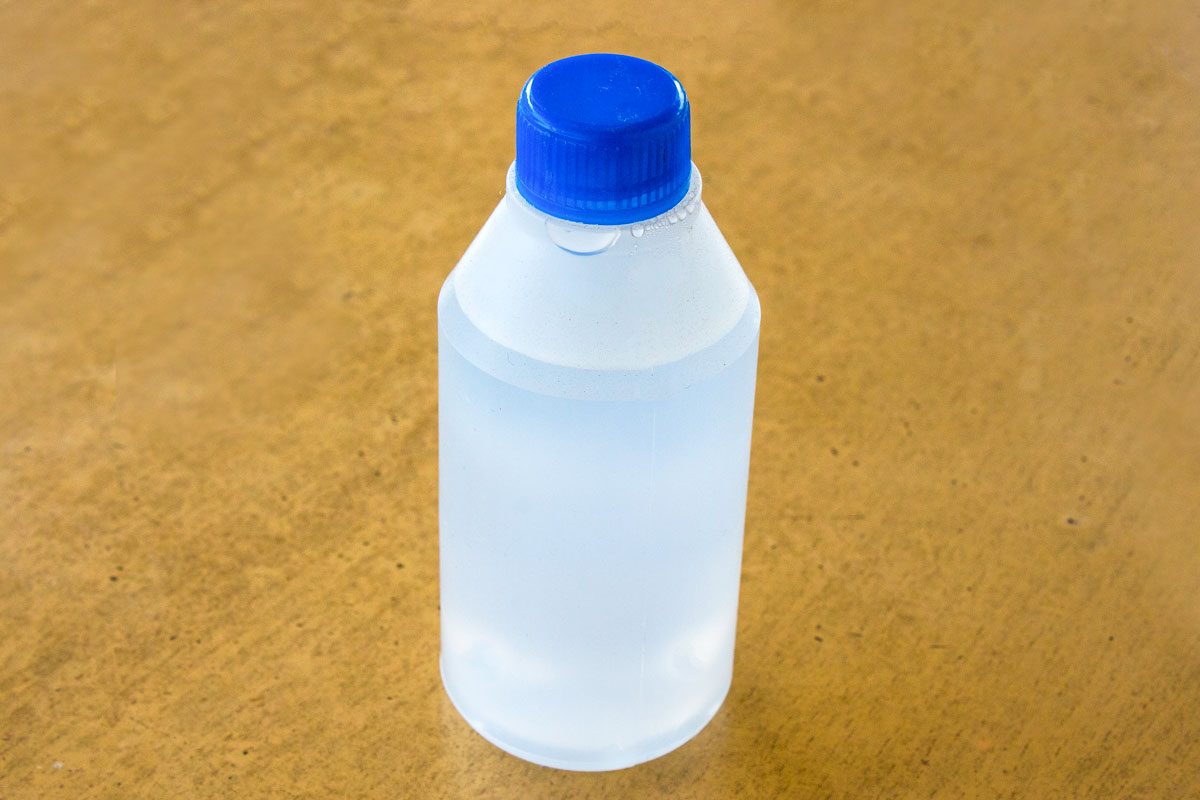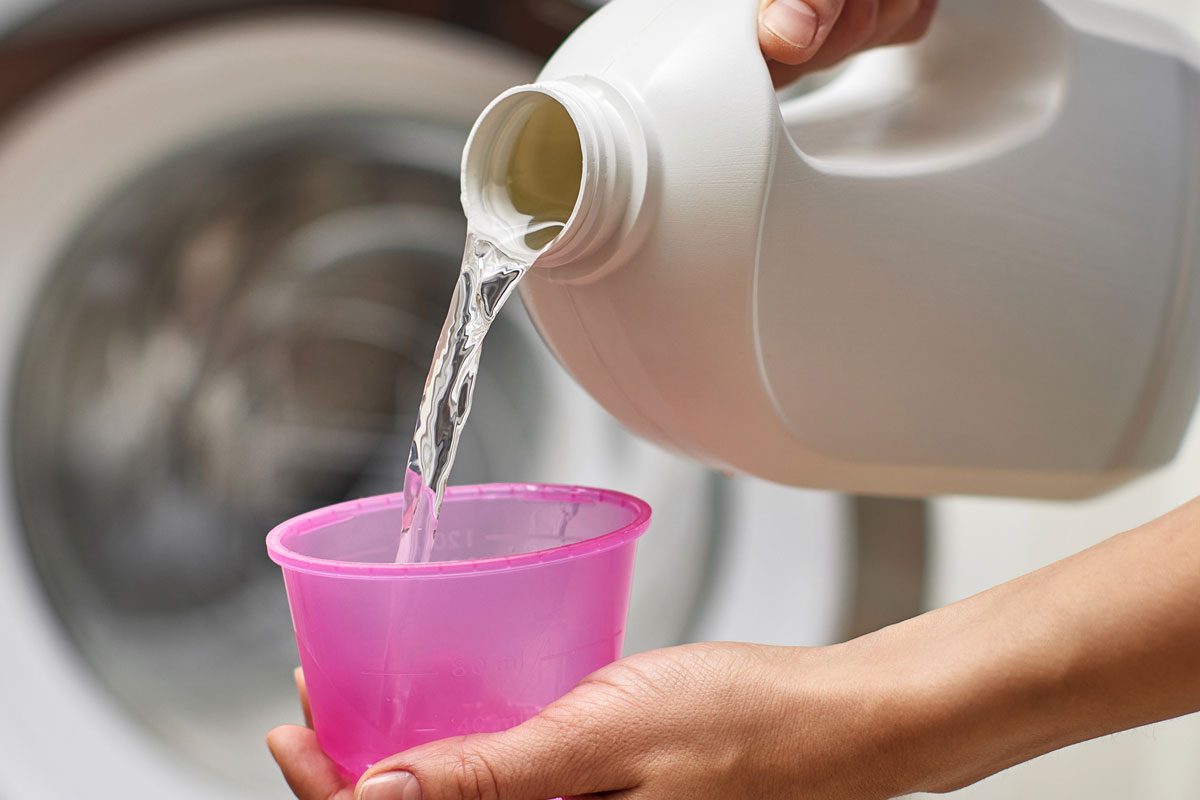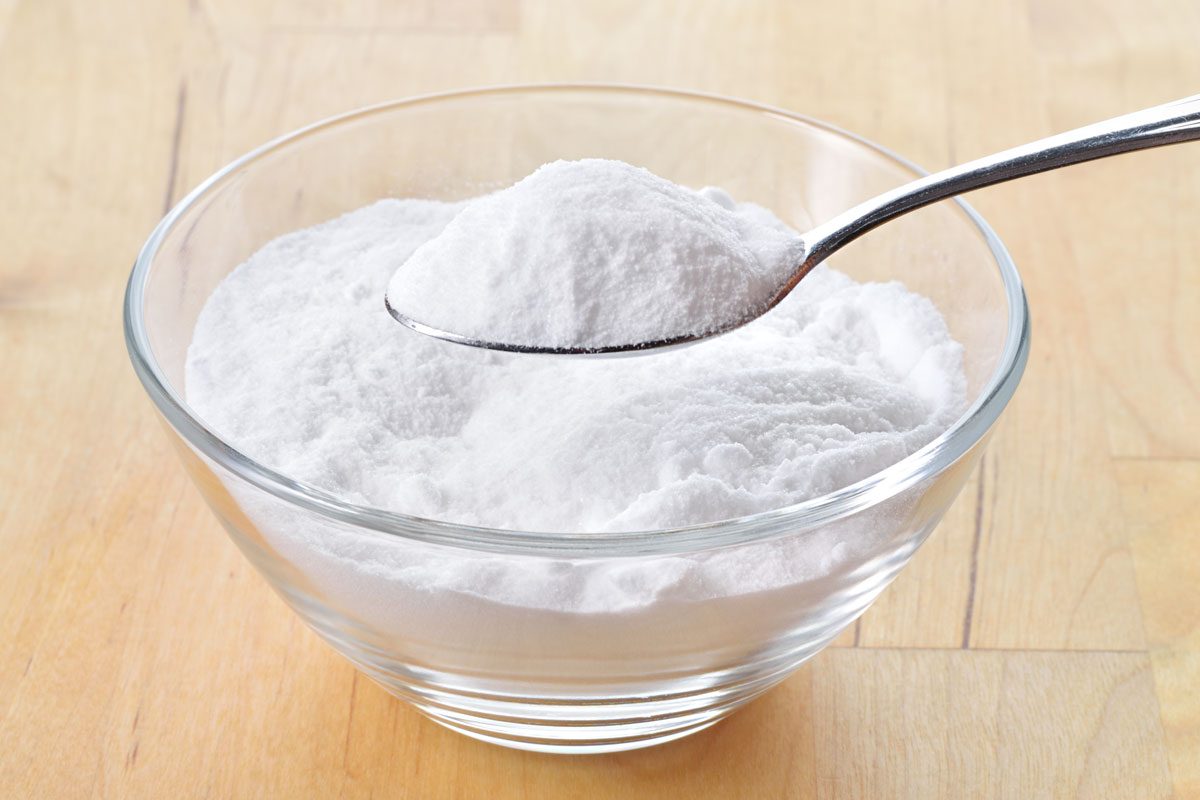The bottom line: Think twice before mixing once

The 3 Things You Should Never Mix with Vinegar

Cleaning is one chore many of us loathe. And when it comes to stubborn messes and tough stains, you may feel the urge to start mixing ingredients together in an effort to make the ultimate cleaning product. But before you turn your kitchen into a chemistry lab, beware of the dangers to your health and your home that can potentially arise when mixing cleaning products together.
We all know vinegar is a common pantry staple that many people also use to clean their homes. However, to avoid a dangerous situation, there are certain ingredients you should never mix vinegar with, and we talked to a cleaning professional to find out what they are. Keep reading to learn the three ingredients in particular that you should avoid mixing with vinegar.
Get Reader’s Digest’s Read Up newsletter for more household tips, humor, cleaning, travel, tech and fun facts all week long.
Never mix vinegar with these 3 household items
“Don’t take chances when it comes to the safe use of cleaning products,” says Brian Sansoni from the American Cleaning Institute. “Mixing cleaning products can lead to irritated airways, respiratory problems or burns to your skin, eyes, throat, nose and lungs.” To stay safe, never mix vinegar with these three ingredients.
Hydrogen peroxide + vinegar

You may assume that combining these two ingredients in the same bottle will boost their cleaning power, but it’s more likely to increase your risk of going to the emergency room. In fact, together they’re quite potent, so you should never mix vinegar with hydrogen peroxide. “Combining these two cleaning solutions creates peracetic acid,” says Sansoni. “It’s corrosive and an irritant that can harm your skin, eyes, nose and throat in high concentrations.”
Bleach + vinegar

Bleach smells quite pungent by itself. But you should never mix vinegar with bleach; the smell grows even more acrid once you add vinegar because the combination releases chlorine and chloramine vapors, which can cause a chemical burn. “Many cleaning products use either bleach or ammonia, and mixing them [with vinegar] can cause this reaction, which is why you should never mix any kind of cleaning product,” says Sansoni.
Baking soda + vinegar

Each of these products can easily clean a mess on its own, but together, they lose their ability to effectively clean your home. Never mix vinegar with basic baking soda and stow the mixture away in a closed container because, together, they can be quite explosive—literally. That’s because vinegar causes baking soda to foam up and explode. But, despite the explosive nature of the two ingredients, you’re essentially left with nothing more than water and a bit of sodium acetate—virtually useless at cleaning surfaces.
What can you use instead?
If you decide to make a cleaning product from scratch, Sansoni recommends you double-check the safety of the combinations, list all the ingredients on the container and keep the bottle out of reach of children and pets. And always test the homemade product before using it. His takeaway: “You save a lot of time and trouble by using formulated cleaning products that come with details on safe and proper use and storage.”
FAQs
Is white vinegar the same as distilled vinegar?
Yes, white vinegar and distilled vinegar are often used interchangeably, and the liquid is actually clear. Both are made from fermented grain alcohol (ethanol), which transforms into acetic acid. Water is added to the mix to dilute the acid down to about 5% to 10% acetic acid.
Is vinegar safe to use with dish soap?
Yes. Mixing vinegar with dish soap is usually safe for cleaning. While the dish soap works to remove grease and grime, the vinegar disinfects and deodorizes naturally. When it doubt, always do a cleaning spot test to ensure there’s no damage or discoloration to your surfaces.
What is vinegar corrosive to?
Vinegar is acidic, so it can corrode certain surfaces. Don’t use it to clean metal, including stainless steel, aluminum and copper. Keep it away from natural stone counters, including granite, marble and travertine. It can also damage rubber and wax finishes. Practice vinegar cleaning safety by doing a spot check whenever you clean a surface.
About the expert
|
Why trust us
At Reader’s Digest, we’re committed to producing high-quality content by writers with expertise and experience in their field in consultation with relevant, qualified experts. We rely on reputable primary sources, including government and professional organizations and academic institutions as well as our writers’ personal experiences where appropriate. We verify all facts and data, back them with credible sourcing and revisit them over time to ensure they remain accurate and up to date. Read more about our team, our contributors and our editorial policies.
Sources:
- Brian Sansoni, Senior Vice President, Communications, Outreach and Membership at the American Cleaning Institute
- MasterClass: “Are White Wine and White Vinegar the Same?”
- Beaver Maids: “A Guide to Cleaning with Dish Soap and Vinegar”
- Consumer Reports: “9 Things You Should Never Clean With Vinegar”






















